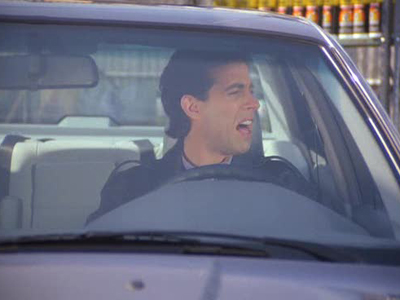U.S. Supreme Court Ruling Will Have Ripple Effect on Cases Alleging Vaccine-Autism Link
SCOTUSblog has previously set forth the particulars of this case, which is styled Bruesewitz v. Wyeth, Inc., 561 F.3d 233 (3rd Cir. 2009) (see the Third Circuit Court of Appeals’ order here, from which Plaintiffs appealed). Essentially, the case calls into question whether the National Childhood Vaccine Injury Act (NCVIA) should protect manufacturers from virtually all product liability lawsuits. The NCVIA, established by Congress in 1986, provides that vaccine manufacturers cannot be sued for injuries from vaccines if the injuries resulted from side effects that were “unavoidable.” Elsewhere in the Act, Congress also created an administrative process known as the “Vaccine Court,” which was designed to provide money to children injured by vaccines. Accordingly, the law would preempt such claims in state court. This was critical, Congress believed, because vaccine manufacturers otherwise might have gone bankrupt due to judgments against them and would be unable to make vaccines critical to public health.
Defense Verdict in Latest Big Tobacco Case
According to this recent piece in the Montreal Gazzette, of all publications, a Florida jury last week found that two of the nation’s tobacco giants, Philip Morris and R.J. Reynolds, were not responsible for causing a man’s laryngeal cancer after he smoked an average of 1.5 packs of cigarettes per day for 37 years. The case was Willis v. RJ Reynolds & Philip Morris USA.
A View of the Prempro Litigation from a Different Angle
Diabetes Drug Avandia to be Severely Restricted in U.S., Unavailable in Europe
Class Action Alleging BMW BO/Crayon Odor Tossed
 A recently dismissed class action lawsuit was seemingly pulled from the pages of the “Smelly Car” episode of Seinfeld. Suit was filed in federal court in New Jersey in October 2009 on behalf of owners of BMW Model E46 owners, who alleged that a noxious odor permeated the cabins of their ultimate driving machines. Alban v. BMW of North America, LLC, Civ. No. 09-5398 (D.N.J. 2010). The 20-page complaint actually includes quotes purportedly pulled from various websites dedicated to the issue. Some favorites from the complaint: “It kind of smells like a mix of BO and crayons.” “[The smell] burns your nostrils!” And finally, as if quoted from Elaine herself, “I shampoo’d, etc. Nothing helps.”
A recently dismissed class action lawsuit was seemingly pulled from the pages of the “Smelly Car” episode of Seinfeld. Suit was filed in federal court in New Jersey in October 2009 on behalf of owners of BMW Model E46 owners, who alleged that a noxious odor permeated the cabins of their ultimate driving machines. Alban v. BMW of North America, LLC, Civ. No. 09-5398 (D.N.J. 2010). The 20-page complaint actually includes quotes purportedly pulled from various websites dedicated to the issue. Some favorites from the complaint: “It kind of smells like a mix of BO and crayons.” “[The smell] burns your nostrils!” And finally, as if quoted from Elaine herself, “I shampoo’d, etc. Nothing helps.”
Although in “Seinfeld” the culprit was a malodorous valet who was only briefly seated in Jerry’s BMW, here, it seems, the cause of the odor was BMW’s alleged use of excessive amounts of solvent on paneling in and around the trunk. The complaint alleged that BMW knew of and has even acknowledged in a Technical Service Bulletin the existence of an “unpleasant . . . solvent or wax crayon” odor, but that it refused to repair or replace the defective insulation after the four year or 50,000 mile warranty period passed. The odor, according to the complaint, often would take several years to manifest. The complaint set forth causes of action including breach of express and implied warranties.
In any event, the complaint, filed by Pennsylvania firm Chimicles & Tikellis and New Jersey’s Law Office of Lane M. Ferdinand, was recently tossed by U.S. District Court Judge Dickinson of New Jersey, who granted BMW’s motion to dismiss. The court held that the breach of express warranty claim failed due to the undisputed fact that the Plaintiff’s warranty had expired at the time the defect arose. Similarly, the claim for breach of implied warranty failed as the result of limits placed on any such claim within BMW’s warranty agreement. The court based this finding on the fact that the agreement provided, in conspicuous language, that the duration of any implied warranties was to be limited to the duration of the express warranties–“48 months or 50,000 miles, whichever occurs first.”
California Appellate Court Upholds Summary Judgment Where Expert Offers No Factual Basis for Opinion
190 Tons of WalMart Deli Meat Recalled Over Potential Listeria Contamination
 People of WalMart beware: 190 tons of the mega-store’s deli meat have reportedly been recalled due to potential Listeria contamination. The affected product comes from Buffalo, New York-based Zemco Industries. According to the USDA press release, the problem was discovered as the result of a retail sample collected by the State of Georgia that confirmed the meat was positive for Listeria monocytogenes.
People of WalMart beware: 190 tons of the mega-store’s deli meat have reportedly been recalled due to potential Listeria contamination. The affected product comes from Buffalo, New York-based Zemco Industries. According to the USDA press release, the problem was discovered as the result of a retail sample collected by the State of Georgia that confirmed the meat was positive for Listeria monocytogenes.














